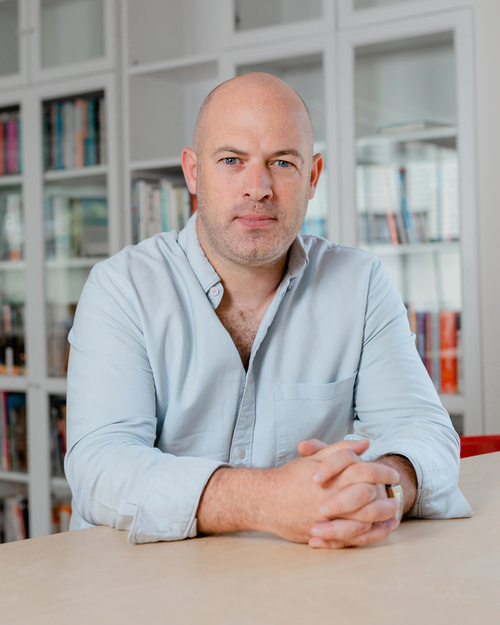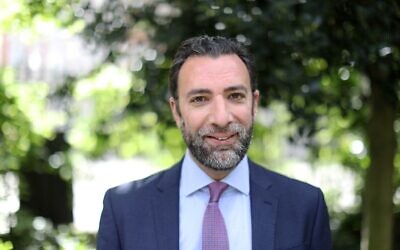OPINION: Our rabbinic leaders should resolve and not provoke cognitive dissonance within their communities
New North London's Rabbi Lara Haft Yom-Tov was found to have committed serious misconduct by calling Israeli politicians 'war criminals'. So, what does 'freedom of the pulpit' mean for us today?
Tensions have been high at one of London’s largest synagogues, New North London, following the inclusion in a haggadah of an essay by one of its rabbis, Lara Haft Yom-Tov, that refers to the Israeli leadership as instigating war crimes and other unsubstantiated claims.
The controversy elicited the response, subsequently retracted, by the synagogue’s leadership that “each Masorti rabbi is representative of their own opinion”. Many, both in the community itself and beyond have voiced their deep concern that Rabbi Lara or any rabbi for that matter, should indeed be free to voice their opinions unhindered.
It is somewhat ironic that the Reform pioneer, Rabbi Stephen Wise, has been referenced in his fight for ‘freedom of the pulpit’ in this whole debacle. In early 20th century America where he lived, faced with an anti-Zionist establishment at the time, it was above all a determination to speak out in favour of a Jewish state that drove his own focus on the need for free and untethered speech.
Rabbi Lara’s controversial words must certainly invite us to ask what ‘freedom of the pulpit’ should look like for our own rabbinic leaders today.
The first element that this should entail must surely be a commitment to truth. Whatever one’s views about the present Israeli government, hurling unfounded accusations, not backed up by substantive evidence, is the very distortion of truth itself and needs to be called out.

Just as we would all rightly baulk at the idea that using the argument of freedom of speech should lend itself to our leaders espousing views that deny the holocaust, so too in other areas our rabbis’ words must be guided by responsibility at all times.
Judaism values the power of words. As the late Rabbi Lord Sacks reminds us, ‘’Language is life. Words are creative but also destructive. If good words are holy then evil words are a desecration.’’ Three times a day we stand in prayer and at the end of the Amidah read: ‘’My God, guard my tongue from evil and my lips from deceitful speech.’’ ‘Freedom of the pulpit’ then requires an attachment to upholding these essential values.
The second central principle that should steer our approach is a notion of speaking truth to power. Calling a halt on unwarranted allegations can absolutely not be taken to mean therefore that voicing critique should cease in its entirety.
We are of course heirs to the prophetic tradition and throughout Jewish history we can draw pride in rabbinic authority upholding ethical and moral principles, which have often included advocating for justice, honesty and compassion.
Just as the prophets of old like Amos, Hosea or Jeremiah spoke out in outrage at the moral and ethical failures of their day or in more recent times Abraham Joshua Heschel, who marched shoulder to shoulder with Martin Luther King Jr advocating for civil rights, so too today, it is vital that our our own rabbinic leadership, where justified and outside of party political allegiance, express their concerns at the moral wrongs of the day.
The final component that should inform how ‘freedom of the pulpit’ is applied relates to upholding the overarching principles of the movements to which our rabbinic leaders belong. Whatever denomination to which we belong, we would all no doubt be somewhat stumped if we woke up on a Shabbat morning and found ourselves listening to a sermon from a rabbi espousing the doctrine that ‘Jesus had died for our sins’!
We would of course expect and encourage our rabbinic leadership to challenge and stir debate, perhaps even push the boundaries of their movement’s founding philosophies but rather than fuel, we would surely envisage them to resolve and not provoke cognitive dissonance within their communities.
The late Rabbi Dr Louis Jacobs in an article once declared that whilst “religion has been used to comfort the troubled, now it must be used to trouble the comforted”. This proposition must certainly guide how we interpret and apply what ‘freedom of the pulpit’ means for us today. This, however, should never be at the expense of a demonstrable attachment to truth, an adherence to the central fundamentals of the movement to which a person belongs and ultimately a profound understanding of the weight of responsibility which rests on their shoulders.
• Simon Eder is co-editor of Voices of Peace, 36 Essays in Response to 7 October, Izzun Books

Thank you for helping to make Jewish News the leading source of news and opinion for the UK Jewish community. Today we're asking for your invaluable help to continue putting our community first in everything we do.
For as little as £5 a month you can help sustain the vital work we do in celebrating and standing up for Jewish life in Britain.
Jewish News holds our community together and keeps us connected. Like a synagogue, it’s where people turn to feel part of something bigger. It also proudly shows the rest of Britain the vibrancy and rich culture of modern Jewish life.
You can make a quick and easy one-off or monthly contribution of £5, £10, £20 or any other sum you’re comfortable with.
100% of your donation will help us continue celebrating our community, in all its dynamic diversity...
Engaging
Being a community platform means so much more than producing a newspaper and website. One of our proudest roles is media partnering with our invaluable charities to amplify the outstanding work they do to help us all.
Celebrating
There’s no shortage of oys in the world but Jewish News takes every opportunity to celebrate the joys too, through projects like Night of Heroes, 40 Under 40 and other compelling countdowns that make the community kvell with pride.
Pioneering
In the first collaboration between media outlets from different faiths, Jewish News worked with British Muslim TV and Church Times to produce a list of young activists leading the way on interfaith understanding.
Campaigning
Royal Mail issued a stamp honouring Holocaust hero Sir Nicholas Winton after a Jewish News campaign attracted more than 100,000 backers. Jewish Newsalso produces special editions of the paper highlighting pressing issues including mental health and Holocaust remembrance.
Easy access
In an age when news is readily accessible, Jewish News provides high-quality content free online and offline, removing any financial barriers to connecting people.
Voice of our community to wider society
The Jewish News team regularly appears on TV, radio and on the pages of the national press to comment on stories about the Jewish community. Easy access to the paper on the streets of London also means Jewish News provides an invaluable window into the community for the country at large.
We hope you agree all this is worth preserving.






















